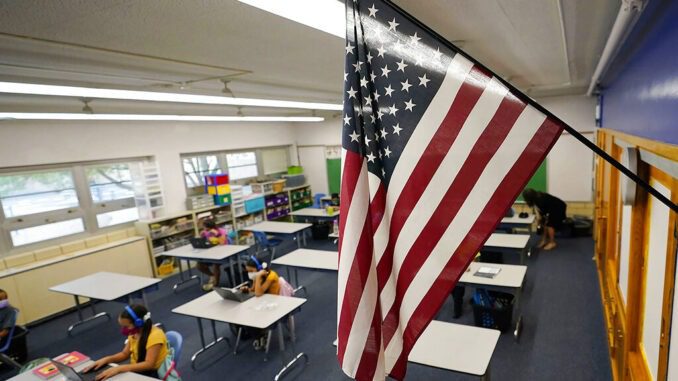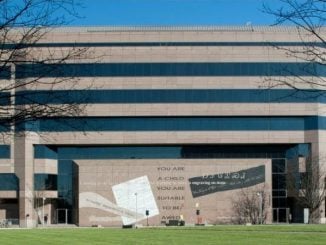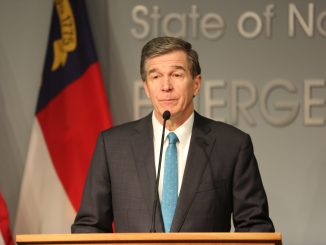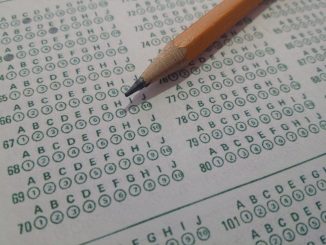
RALEIGH — Gov. Roy Cooper’s announcement of Phase Three brings a few small changes to how businesses and certain venues operate, but schools are not mentioned at all in the order. That leads to the question, what, if any impact does Phase Three’s Executive Order 169 have on the state’s school children?
One area is masks or face coverings, which are still required in public spaces for everyone in the state ages five and up. The order reads that “Face coverings are still required in public when it is not possible to maintain social distancing from non-household members. In Phase Three, this requirement applies to any public place or business, indoor or outdoor.” Also unchanged are the mass gathering limits of 25 for indoors and 50 for outdoors.
Prior to the announcement of Phase Three, Cooper and N.C. Department of Health and Human Services Secretary Mandy Cohen announced that all K-5 elementary students were being allowed to return to school under Plan A, which is daily in-person instruction. The Strong Schools NC Public Health Toolkit created by Cohen’s department was updated to reflect that change; however, it also detailed that students in grades six through 12 would not have the option to return to full-time instruction at school. Instead, those grades must choose between Plan B, a rotation schedule of one week in school and two weeks of remote instruction, and Plan C, which is remote instruction only.
The mask exemptions in the Strong Schools NC Public Health Toolkit mirror that of Executive Order 163 (Phase 2.5), which is identical to details and exemptions for masks in Phase Three.
In the state’s largest district, Wake County Public Schools’ (WCPSS), working guidelines for health protocols regarding masks go beyond the state’s mask mandate by requiring children under the age of five to wear a mask.
“Preschool children, ages 3-4 are expected to wear cloth face coverings if they can reliably wear, remove, and handle cloth face coverings throughout the day,” the guidance reads.
Mask requirements first were introduced in Gov. Cooper’s Phase Two extension and were revised in his most recent Phase Three order. Phase Two did not require masks for those under the age of 11, and neither order recommends or requires children under the age of five to wear a mask.
There has been active debate and varying guidance across the country about masks. Included in that debate is whether or not the government can force usage and whether or not it violates medical privacy to ask an individual about the reason why they are not wearing a mask. Wake County Schools may be putting that debate to the test with their most recently proposed guidelines.
The current WCPSS health protocol guidelines also state that for a student or staff member to not wear a mask must be “supported by medical need” and will be considered on a “case-by-case basis in light of the nature of the disability and the necessity of maintaining a safe and healthy learning environment.”
Parents will have to request a “disability-based accommodation form” and their student will have to wear a mask until the “specific disability-based accommodation” has been approved. There are no details about what constitutes a disability in the WCPSS student health protocols documents.
The Phase Two extension executive order, the Phase 2.5 order and the Phase Three orders all state that “anyone who declines to wear a Face Covering for these reasons should not be required to produce documentation or any other proof of a condition.” All three orders also include the same eleven exceptions for wearing a mask or face covering. The only difference in the two exemption lists is changing the age requirement to wear a mask in public from 11 years old and up to five years old and up.
Parents will also be required to sign a form as confirmation that they are aware of the district’s health protocols. Board member Jim Martin went a step further, saying that he thought that the children should also be required to sign that form.
Students can be suspended and teachers fired for not complying with mask requirements according to the current version of WCPSS’ protocols.
Students can face consequences that include in-school or out-of-school suspension, and any “willful or repeated failures to wear masks at school could result in an involuntary transfer to a virtual learning environment.”
Staff who don’t want to wear a mask have to obtain an exception for “medical reasons” from human resources. Similar to the student protocols, there is no list of what constitutes a medical reason in the staff health protocol document.



